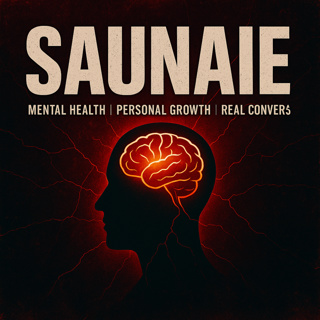
Do You Know How To Budget?
S A U N A I E Presents the 50 30 20 RULE HAPPY BIRTHDAY TO OUR HOST XO Quotes: Look Back At How Far You've Come. 2nd: If You Live to Please Others, Everyone will Love You Except Yourself. S E G M E N T S: 50 30 20 RULE Fun Fact: Senator Elizabeth Warren popularized the so-called "50/20/30 budget rule" (sometimes labeled "50-30-20") in her book, All Your Worth: The Ultimate Lifetime Money Plan. The basic rule is to divide up after-tax income and allocate it to spend: 50% on needs, 30% on wants, and putting away 20% for savings. Referencing over 20 years of research, Warren and Tyagi conclude that you don’t need a complicated budget to get your finances in check. All you need to do is balance your money across your needs, wants and savings goals by using the 50/30/20 rule. 50%: Needs Needs are those bills that you absolutely must pay and are the things necessary for survival. These include rent or mortgage payments, car payments, groceries, insurance, health care, minimum debt payment, and utilities. These are your "must-haves." The "needs" category does not include items that are extras, such as HBO, Netflix, Starbucks, and dining out. 30% ON WANTS Wants are all the things you spend money on that are not absolutely essential. This includes dinner, going to the movies, that new handbag, tickets to sporting events, vacations, the latest electronics, and ultra-high-speed Internet. Anything in the "wants" bucket is optional if you boil it down. You can work out at home instead of going to the gym, cook instead of eating out, or watch sports on TV instead of getting tickets to the game. 20%: Savings Finally, try to allocate 20% of your net income to savings and investments. This includes adding money to an emergency fund in a bank savings account, making IRA contributions to a mutual fund account, and investing in the stock market. You should have at least three months of emergency savings on hand in case you lose your job or an unforeseen event occurs. After that, focus on retirement and meeting other financial goals down the road. H O U S E K E E P I N G Leave a Review on SAUNAIE.COM Follow us on Social Media - > @SAUNAIE SUBSCRIBE SUBSCRIBE SUBSCRIBE
20 Huhti 202226min

5 Keys To Financial Literacy
5 KEYS of Financial Literacy Q U O T E S: "If you don't get out of the box you've been raised in, you won't understand how much bigger the world is." 2nd: Loyalty is Everything, but Everything isn't Loyal. 5 K E Y S of F i n a n c i a l L i t e r a c y 1. E A R N: Before you can start Spending, Saving, and investing, you need to know how much money you make. If you make the same amount each month, this part is pretty easy. Take a good look at your paycheck to identify your gross and net income, and note any other deductions, such as employer-sponsored health insurance or a retirement plan. 2. S P E N D: Creating A Personal Budget A Personal Budget is just a plan for how you want to spend your money, but it’s also the most useful tool for achieving your Financial Goals. To create a Monthly Personal Budget, you’ll need to track your spending over the course of 1 month, and then break everything down into categories. as in the popular 50/30/20 budgeting rule. 3. S A V E: Determining Your Financial Goals Everyone knows it’s important to save money, but it’s hard to spend less than you earn without specific financial goals to work towards. Your financial goals will depend on your unique situation. 4. B O R R O W: Credit Cards, Loans & Credit Score Even if you’re a Diligent Saver, at some point you may have to borrow money to cover a large expense like a home or car. Maybe you borrowed money as a college student and are currently dealing with student loans or credit card debt. 5. P R O T E C T: Preventing Fraud & Buying Insurance Once you’ve set yourself up with a solid budget and investment strategy, it’s important to protect the money that you’ve made. This means regularly reviewing your bank accounts and credit card statements for mistakes or suspicious activity; keeping documents and passwords secure to prevent scams and identity theft; and buying the right kind of insurance to protect yourself in the event of an emergency. Check out the website - > www.SAUNAIE.com Follow us on social media @SAUNAIE Outro: Karma has no Menu. You Get Served What You Deserve.
13 Huhti 202223min

Bank Accounts & Emergency Funds
Q U O T E S: The answer will come to you if you have unwavering Faith 2nd: I've come to believe that all my past failure & frustration were actually laying the foundation for the understandings that have created the new level of living I now enjoy. T O P I C S: Personal Finance & Bank Accounts, & Emergency Funds Personal Finance: is where financial literacy translates into individual financial decision-making. How do you manage your money? Which savings and investment vehicles are you using? Personal finance is about making and meeting your financial goals—whether owning a home, helping other members of your family, saving for your children’s college education, supporting causes that you care about, planning for retirement, or anything else. Among other topics, it encompasses banking, budgeting, handling debt and credit, and investing. Bank accounts are typically the first financial account that you’ll open and are necessary for major purchases and life events. An Emergency Fund is not a specific type of bank account but can be any source of cash that you’ve saved to help you handle financial hardships like job losses, medical bills, or car repairs. Where do I put my Emergency Fund? - A Savings Account with a high interest rate and easy access. Because an emergency can strike at any time, having quick access is crucial. So it shouldn’t be tied up in a long-term investment fund. But the account should be separate from the bank account you use daily, so you’re not tempted to dip into your reserves. - A High-Yield Savings Account is a good place for your money. It is federally insured up to $250,000 per depositor, so it’s safe. The money earns interest, and you can access your cash quickly when needed, whether through withdrawal or a funds transfer. H O U S E K E E P I N G Leave a Review on SAUNAIE.COM or Apple Podcasts Follow us on Social Media -> @SAUNAIE
8 Huhti 202228min

What is Financial Literacy?
I N T R O TO F I N A N C I A L L I T E R A C Y QUOTES: Your speed doesn't matter. Forward is forward. Keep taking those small steps. & you'll surprise even yourself with your amazing progress. 2nd: Some people want it to happen, some wish it would happen, others make it happen What Is Financial Literacy? Financial literacy is the ability to understand and effectively use various financial skills, including personal financial management, budgeting, and investing. Financial literacy is the foundation of your relationship with money, and it is a lifelong journey of learning. The earlier you start, the better off you will be because education is the key to success when it comes to money when you have educated yourself, Many people find money matters intimidating but they don’t have to be. Understanding Financial Literacy In recent decades financial products and services have become increasingly widespread throughout society. Whereas earlier generations of Americans may have purchased goods primarily in cash, various credit products are popular today, such as credit and debit cards and electronic transfers. Indeed, a 2019 survey from the Federal Reserve Bank of San Francisco showed that consumers preferred cash payments in only 22% of transactions, favoring debit cards for 42% and credit cards for 29%. and our 2nd segment We discuss 7 Skills to Improve Your Financial Literacy H o u s e k e e p i n g SUBSCRIBE. SHARE. Review on SAUNAIE.COM
1 Huhti 202226min

What Are Happy Hormones?
Q U O T E S: You started this Journey for a reason, Never forget it. 2nd: You can't change the past, you can only make decisons today to help how your future turns out. S E G M E N T S: What Are Happy Hormones & How To Hack Them, March Recap & April Goals H a p p y H o r m o n e s 1. Dopamine. AKA the “feel-good” hormone, is a hormone and neurotransmitter that’s an important part of your brain’s reward system. Dopamine is associated with pleasurable sensations, This could be eating a great meal, listening to inspiring music, getting a massage, or completing a workout. The release of dopamine gives feelings of well-being and motivates you to seek things you enjoy and do well, along with learning, & memory, motor system function. We know Dopamine is a triggered when you do something well. Make sure you regularly incorporate things you enjoy and do well, into your life. 2. Serotonin. This hormone (and neurotransmitter) helps regulate your mood as well as your sleep, appetite, digestion, learning ability, and memory. Additionally, it helps decrease our worries and concerns. Serotonin is naturally triggered by regular things we can do each day – going for a walk in the sunshine, getting a good night’s sleep, spending time in nature or self-care activities that reduce stress levels. 3. Oxytocin. Often called the “love hormone,” oxytocin is essential for childbirth, breastfeeding, and strong parent-child bonding. This hormone can also help promote trust, empathy, and bonding in relationships, and oxytocin levels generally increase with physical affection like kissing, cuddling, and sex. 4. Endorphins. Endorphins are your body’s natural pain reliever, which your body produces in response to stress or discomfort. Endorphin levels also tend to increase when you engage in reward-producing activities, such as eating, working out, or having sex. 2ND SEGMENT M E N T A L H E A L T H H A C K S 1. Exercise has multiple physical health benefits. It can also have a positive impact on emotional well-being. If you’ve heard of a “runner’s high,” you might already know about the link between exercise and endorphin release. 2. L A U G H Of course, laughter won’t treat ongoing health issues. But it can help relieve feelings of anxiety or stress, and improve a low mood by boosting dopamine and endorphin levels. 3. C O O K (and enjoy) a favorite meal with a loved one This tip could — in theory — boost all 4 of your happy hormones. The enjoyment you get from eating something delicious can trigger the release of dopamine along with endorphins. Sharing the meal with someone you love, and bonding over meal preparation, can boost oxytocin levels. 4. L i S T E N to M u s i c Music can give more than one of your happy hormones a boost. 5. M E D i T A T E If you’re familiar with meditation, you might already know of its many wellness benefits — from improving sleep to reducing stress. If you want any updates join our email list on our website www.SAUNAIE.com Follow us on Social Media @SAUNAIE
28 Maalis 202236min

Improving Your Mental Health
Q U O T E S: I am becoming Better With each day 2nd: Don't let your happiness fall victim to your overthinking. S E G M E N T: Ways to improve Your Mental Health We've discussed What's Mental Health?, Myths & Facts About Mental Health, What Factors Affect Your Mental Health, & our most recent episode we covered The Different Mental Disorders, and with this episode we'll be covering "Ways Improve Your Mental Health" 1. Make Social Connection A Priority - Face to Face is key when making a social connection. Phone calls and social networks have their place, but few things can beat the mood-boosting power of quality face-to-face time with other people. Strong family ties and supportive friends can help you deal with the stresses of life. Friends and family can make you feel included and cared for. They can offer different views from whatever’s going on inside your own head. They can help keep you active, keep you grounded and help you solve practical problems. In-person social interaction with someone who cares is one of the most effective ways to calm your nervous system and relieve stress. 2. Exercise - Staying active is as good for the brain as it is for the body. Regular exercise or activity can have a major impact on your mental and emotional health, relieve stress, improve memory, and help you sleep better. Exercise also keeps your other vital organs healthy. Experts say most people should do about 30 minutes’ exercise at least five days a week. Exercising doesn’t just mean doing sport or going to the gym. Walks in the park, gardening or housework can also keep you active. 3. Diet - There are strong links between what we eat and how we feel, for example, caffeine and sugar can have an immediate effect. But food can also have a long-lasting effect on your mental health. Your brain needs a mix of nutrients to stay healthy and function well, just like the other organs in your body. A healthy balanced diet includes: lots of different types of fruits and vegetables wholegrain cereals or bread nuts and seeds oily fish plenty of water. Foods that can support your mood include fatty fish rich in omega-3s, nuts (walnuts, almonds, cashews and peanuts), avocados, beans, leafy greens (spinach, kale and Brussels sprouts), and fresh fruit such as blueberries. Eat at least three meals each day and drink plenty of water. Try to limit how many high-caffeine or sugary drinks you have, and avoid too much alcohol. 4. S L E E P - One way to get sleep better is to take a break from the stimulation of screens — TV, phones, tablets or computers — in the two hours before bedtime. I'm sure you heard that 8 hours of sleep a night is key but 6-8 hours is more realistic so that you can have that mental balance. I've been neglecting my sleep and this week I took a nap and it energized me mentally. 5. Find Your Purpose & Meaning - This is different for everyone. You might try one of the following: Engage in work that makes you feel useful Invest in relationships and spend quality time with people who matter to you Volunteer, which can help enrich your life and make you happier Care for others, which can be as rewarding and meaningful as it is challenging H o u s e k e e p i n g i t e m s Review Subscribe Share Follow us on social media @SAUNAIE www.SAUNAiE.com
25 Maalis 202227min

Mental Health 104
Q U O T E S: Have you ever noticed that the more positive you think, the more positive you feel? 2nd: The Harder You Work for Something, The Greater You'll Feel When You Achieve it. SEGMENT: Different Types of Mental Disorders What are mental disorders? Mental disorders are conditions that affect your thinking, feeling, mood, and behavior. They may be occasional or long-lasting (chronic). They can affect your ability to relate to others and function each day. What causes mental disorders? There is no single cause for mental illness. A number of factors can contribute to risk for mental illness and a lot more discussed in this segment 2nd Segment: Anxiety disorders: People with anxiety disorders respond to certain objects or situations with fear and dread, as well as with physical signs of anxiety or panic, such as a rapid heartbeat and sweating. An anxiety disorder is diagnosed if the person's response is not appropriate for the situation, if the person cannot control the response, or if the anxiety interferes with normal functioning. Anxiety disorders include generalized anxiety disorder, panic disorder, social anxiety disorder, and specific phobias. Example: Fatigue, Restlessness, Difficulty Sleeping, Excessive Worrying Mood disorders: These disorders, also called affective disorders, involve persistent feelings of sadness or periods of feeling overly happy, or fluctuations from extreme happiness to extreme sadness. The most common mood disorders are depression, bipolar disorder, and cyclothymic disorder. Subscribe, Review, & Share Check out the website SAUNAIE.COM Follow us on social media @SAUNAIE
14 Maalis 202224min

Mental Health 103
QUOTES: What May Be Hard Now Will Make You Stronger in the Long Run. 2nd: Just For Today, Focus On Everything You Have To Gain instead of Everything You Have To Give Up. It Can Only Get Better From Here. Mental health problems can have a wide range of causes. It's likely that for many people there is a complicated combination of factors – although different people may be more deeply affected by certain things than others. For example, the following factors could potentially result in a period of poor mental health: - childhood abuse, trauma, or neglect - social isolation or loneliness - experiencing discrimination and stigma, including racism - social disadvantage, poverty or debt - bereavement (losing someone close to you) - severe or long-term stress - having a long-term physical health condition - unemployment or losing your job - homelessness or poor housing - being a long-term carer for someone - drug and alcohol misuse - domestic violence, bullying or other abuse as an adult - significant trauma as an adult, such as military combat, being involved in a serious incident in which you feared for your life, or being the victim of a violent crime - physical causes – for example, a head injury or a neurological condition such as epilepsy can have an impact on your behavior and mood. (It's important to rule out potential physical causes before seeking further treatment for a mental health problem).
7 Maalis 202228min






















